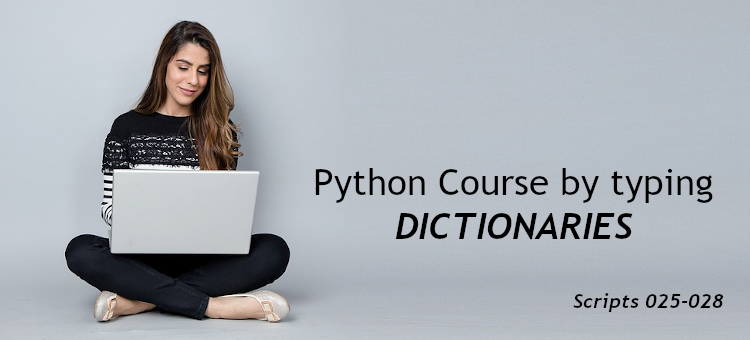How to create dictionary in Python
[cc lang=”python”]
# creating dictionary
dict1 = {
‘key 1’ : ‘value 1’,
‘key 2’ : ‘value 2’,
‘key 3’ : ‘value 3’
}
print(dict1)
print(type(dict1))
# creating disctionary with build in function dict
dict1 = dict( [
( ‘key 1’, ‘value 1’),
( ‘key 2’, ‘value 2’),
( ‘key 3’, ‘value 3’)
])
print(dict1)
print(type(dict1))
[/cc]
Standard operations with dictionaries
[cc lang=”python”]
# empty dictionary
dict1 = {}
print(dict1)
print(type(dict1))
# add some key->values into dictionary
dict1[‘cat’] = ‘black’
dict1[‘dog’] = ‘brown’
dict1[‘cow’] = ‘white and black’
dict1[‘horse’] = ‘white’
dict1[‘monkey’] = ‘white’
print(dict1)
# delete element by key
del dict1[‘cat’]
print(dict1)
[/cc]
Running functions with python dictionaries
[cc lang=”python” height=”770px”]
# initialize dictionary
dict1 = {
‘key 1’ : ‘value 1’,
‘key 2’ : ‘value 2’,
‘key 3’ : ‘value 3’,
‘key 4’ : ‘value 4’
}
# delete element by key and get a value
dog_color = dict1.pop(‘key 1’)
print(dog_color)
print(dict1)
# get keys from dictionary
print(dict1.keys())
print(type(dict1.keys()))
# get values from dictionary
print(dict1.values())
print(type(dict1.values()))
# get element by value
print(dict1.get(‘key 2’))
# print all items
print(dict1.items())
print(type(dict1.items()))
# delete last item
item = dict1.popitem()
print(item)
print(dict1)
# add one dictionary into another and make update
dict2 = { ‘key 1’ : ‘value 1’, ‘key 2’: ‘value 22222’ }
print(dict2)
print(dict1)
dict1.update(dict2)
print(dict1)
# delete all items
dict1.clear()
print(dict1)
[/cc]
How to convert dictionary to other data types
[cc lang=”python”]
# initilize dictionary
dict1 = { ‘cat’: ‘yellow’, ‘dog’ : ‘black’ }
print(dict1)
print(type(dict1))
# Using zip
listt = zip(dict1.keys(), dict1.values())
# Converting from zip object to list object
listt = list(listt)
print(listt)
print(type(listt))
[/cc]



